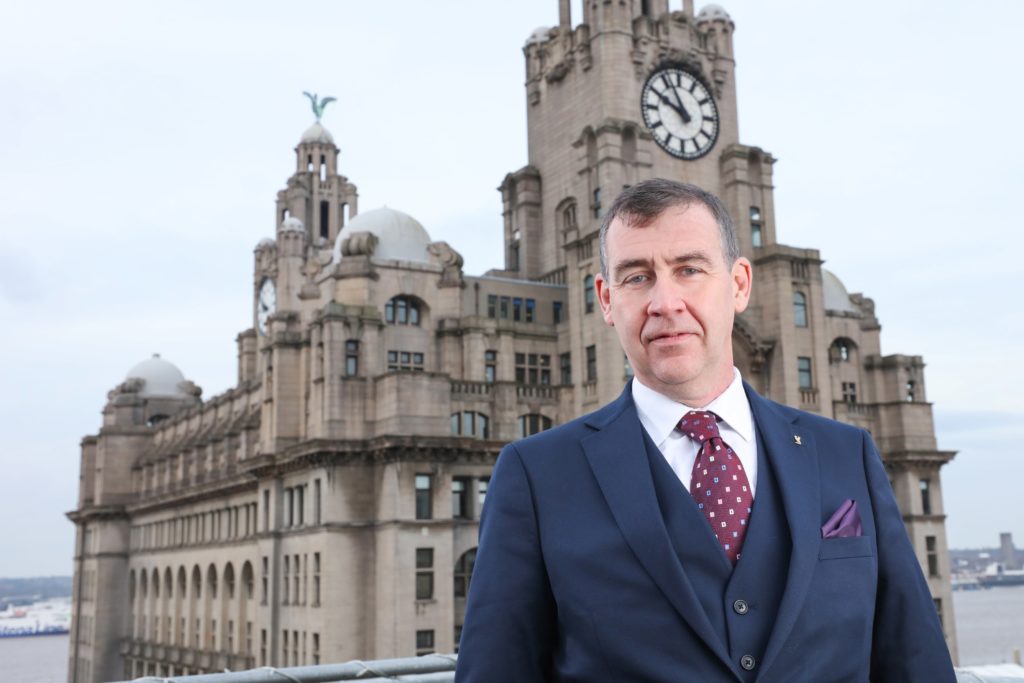Sector - Education & Training
Life After Coronavirus Lockdown

Life has changed for many people within the construction sector, with many being on furlough for months. But how has the industry changed, and what impact has it had on mental health? Here, Sean Keyes Managing Director of Civil & Structural Engineering firm Sutcliffe, shares his thoughts on these subjects
Assuming the country doesn’t enter a second national lockdown, I remain optimistic that the construction industry will recover quickly from the pandemic and will be key to driving the country’s economic bounce back. Already, reports suggest that UK building is accelerating again, with builders reporting their strongest monthly rise in activity in almost five years in July, the highest across all sectors, according to the UK Construction Purchasing Managers Index (PMI). This is a good sign and a clear response to the Prime Minister’s call for the country to “build build build” itself out of the pandemic.
Sutcliffe is pleased to report that it has come through the first fight unscathed – we have retained all staff during the lockdown period, there have been no pay cuts, and most of our 47 staff are now back in the office, as we focus on the future with confidence and stability. Of course, that is not to say the last six months have been easy, as I am sure many businesses will attest to.
Like everyone in the industry, we have seen the market shrink and projects slow down, but we were in the fortunate position of going into the pandemic on the back of our most successful year to date, with a balanced and varied portfolio of sturdy clients. This has allowed us to be more measured and smart with our business decisions. The support from the Government, through the CBILS scheme and the staggering of VAT payments, has also been welcome.
Speaking to some other businesses in the industry, and I am sure this is the case across all sectors, it is clear that furlough has been a godsend in many respects, but a challenge in other ways. There are three categories of employees – those furloughed and who are reluctant to return to work for whatever reason, those who want to return, and then those who want to return but who are too scared to do so through genuine concerns for their health and safety. For the latter – it is important to break down those barriers and make them realise that the environment we work in is as safe, if not more so, than other environments, such as a shop or a restaurant. I think the industry is now coming to the end of this stage, which is encouraging. Ultimately, we need people back to work if we are to rebuild as a country.
Lockdown certainly presented a unique set of issues to both employers and their staff. Working from home had its challenges – being locked up for months and not seeing friends and family for weeks on end, more distractions leading to a loss of productivity, family problems that were amplified, and the ongoing uncertainty of the pandemic causing heightened stress and anxiety. All of this has an impact on mental health, and in turn can impact all aspects of life, including work. The ever-changing travel quarantine restrictions also creates issues with booking annual leave – especially problematic at a time when people need to take a proper holiday more than ever.
We improved all our systems at Sutcliffe to make remote working possible and Zoom calls enabled regular communication between the team at a time when we couldn’t work from the office – and it continues to give staff a greater level of flexibility. However, I am a firm believer that face-to-face collaborative working produces the best results, and lockdown hampered this to some degree. Attending on-site is also always the preferred way to see the progression of a project, over video, photo or live stream. As I say, nothing compares to a group of people sitting in the same room, interacting with each other and sharing ideas. Face-to-face interaction also leads to positive mental wellbeing, and a stronger sense of unity within the team.
I have to say that there have been some positives to come out of lockdown. Working from home has encouraged more independent thinking among our team of designers, which has been great to see. I’ve also personally witnessed some of our younger team members grow up very quickly during the crisis – they’ve stepped up. One apprentice in particular, Nathan Guy, has positively shone – pushed in at the deep end and flourished. I think the pandemic has also made a lot of us appreciate being able to work in a nice place, with people you can rely on. I think we have all come to realise the importance of this in recent months.
Looking ahead, we continue to take a strategic approach to grow the business in the next five years, maintaining our market share and tapping into new territories, such as the Midlands. It is also encouraging to see politicians – at national and city region level – recognise the construction sector as key to the country’s growth post-Covid, with particular impetus on planning laws reforms and the future of our young people. Sutcliffe is committed to ensuring young talent is harnessed and moulded ready for long-term, sustainable work in the industry – and we are planning to take on more apprentices each year than we ever have before.
What remains key is that we continue being responsible employers. The safety and wellbeing of our staff is paramount, and measures are in place to ensure everyone can work safely within government guidelines, whether it is at our head office in Liverpool or on a construction site. We will continue to offer a fluid working policy which provides staff more flexible hours to be able to look after children and vulnerable family members. We are also going to introduce group “therapy sessions” with the team, with a trained professional, to encourage them to talk to each other, vocalise any struggles they may have, and discuss ways we can all support each other. Our people matter and we want them to come to work and enjoy what they do.
If you would like to read more like this, then please click here
Related Articles
More Education & Training Features
- Immigration policy must serve Britain, not party politics – NFB
29 May 25
The Government has published a new White Paper which sets out major reforms to the UK’s immigration system.
- Moving beyond EDI to embed good employment
11 Apr 25
The benefits of EDI - higher retention, more productive teams, and healthy morale - are crucial.
- Universities fear government reforms will stifle construction sector demand for higher and degree apprenticeships
3 Apr 25
Industry fears forthcoming apprenticeship reforms will deter many construction firms from upskilling their workforce.






